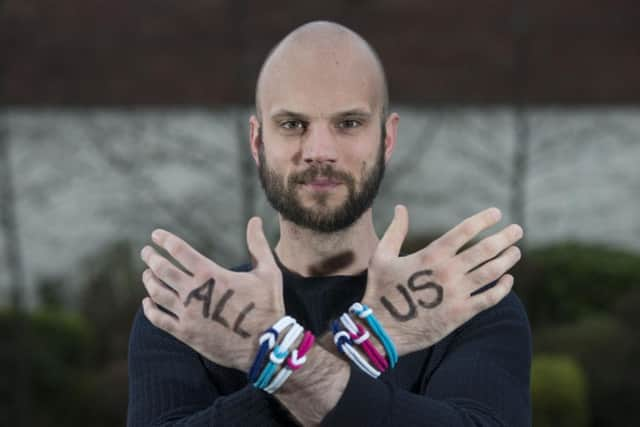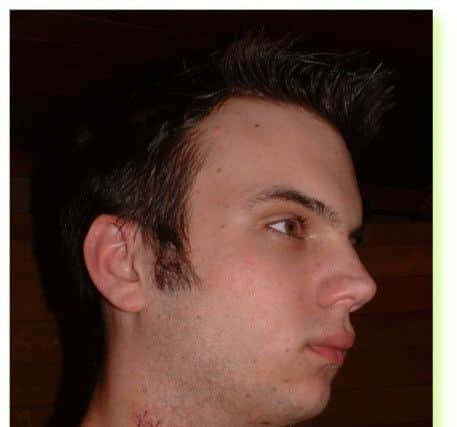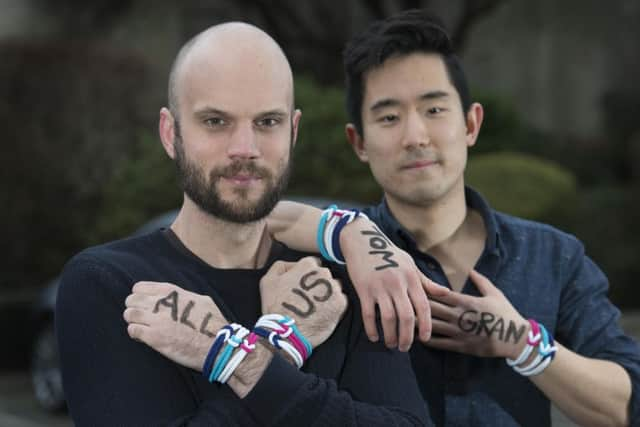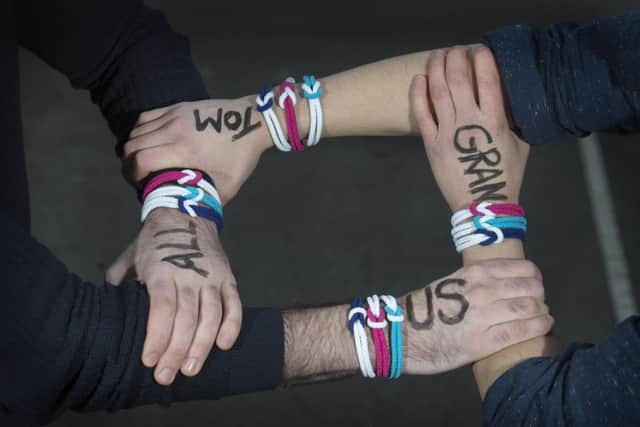How his own cancer ordeal led Tom to seek career in medicine


Tom Grew was just 18, studying History at the University of Sheffield with his whole life ahead of him.
Then he discovered a lump on the side of his neck and his life changed forever. Doctors removed a tumour the size of an egg and Tom was diagnosed with Hodgkin Lymphoma, a rare cancer of the lymphatic system.
Advertisement
Hide AdAdvertisement
Hide AdHis diagnosis and subsequent treatment had such an affect on him that after graduating Tom decided to change his career plans and retrain as a doctor to help others fighting both the physical and psychological affects of this devastating disease.


“I’d had a painless lump in my neck, which had been there for about 18 months till I finally went to see my GP at home over the Christmas break,” recalls Tom, now 31. “I was referred to my local hospital and had surgery to remove it. The lump they took out was the size of an egg, which was initially thought to be a cyst. But when I went back for the results two weeks later, I was told it was cancer – Hodgkin Lymphoma.
“That news was a big shock. I didn’t know young people like me got cancer. I was only 18 and just starting out on life as an adult.
“I’d left home, gone to university and was enjoying a new independence. I thought I was invincible, but then everything changed. I remember my dad being very upset, the first time I’d seen him cry. I was an only child so very precious to my mum and dad.”
Advertisement
Hide AdAdvertisement
Hide AdTom was referred to a haematologist and started chemotherapy straight away, which he had every two weeks for six sessions.


“I was in Halls at uni with lots of friends and tried to carry on with the normal student life. But every other week I had to travel back home to Burton on Trent for the chemo. I would be in as a day patient at hospital, then stay at home for the rest of the week to recover, before travelling back up to Sheffield to continue my studies the next week.
“I really suffered from side effects from my treatment, which I felt were worse than the actual cancer. I was sick for days and days afterwards. I used to dread Sundays, because it meant having to go back home for the next chemo.”
During the summer break, Tom then went on to have 20 daily sessions of radiotherapy.
Advertisement
Hide AdAdvertisement
Hide AdHe had to wear a specially moulded mask, fixed to the bench, made to keep him perfectly still to make sure the radiotherapy targeted precisely the same area each day.


During one of these sessions Tom recalls having a panic attack and had to raise his hand to stop the procedure.
After his treatment finished at the end of the summer, Tom was given the good news that tests showed there was no sign of his cancer anymore, he would just need to have check-ups for the next five years.
He returned to Sheffield to start his second year of study. He worked hard to catch up and at the end of three years, Tom graduated alongside his fellow students but although he had handled the physical side effects he struggled emotionally.
Advertisement
Hide AdAdvertisement
Hide Ad“Although the physical side of my cancer had been successfully treated, I continued to have problems with the psychological side effects. For me they, seemed worse than the chemo and radiotherapy. The stress and worry of cancer seemed to take over my life. I was convinced it would come back and each twinge saw me running back to the doctors with an emergency appointment. I was diagnosed with anxiety and depression, which resulted in me taking anti-depressants and cognitive therapy. Yet by the time I finished my History degree, I had been so inspired by those who cared for me that I decided I wanted to study medicine.


“Cancer had changed my life in so many ways and now I had a real drive to become a doctor. But I hated science at school, so I had to spend the next year getting the necessary qualifications at college to apply to medical school. I also got a job in the pharmacy of the hospital where I was treated, which gave me some experience of working in a hospital and with patients.”
In September 2008, Tom was back at the University of Sheffield, this time to study medicine. He also started to get involved with teenage and young adult cancer patients, talking about his own experiences to help both the medical and research community.
While studying, Tom became more and more interested in the psychological side of cancer and how important it is to care for that side of a patient’s illness too and started to think about specialising in psychiatry.
Advertisement
Hide AdAdvertisement
Hide Ad“I know that it is thanks to research that the treatments I received helped beat my cancer. But cancer greatly impacted upon my mental health, as I am sure it does with many other cancer patients. Yet most people don’t realise this can be a major part of someone’s cancer experience. It doesn’t get talked about.” Now Tom is back in Sheffield in his first of three years training to be a psychiatrist, working with Community Mental Health the north of the city. He has teamed up with best friend and fellow doctor, Tae Lee, 26, to urge people to support Cancer Research UK’s Unity Band appeal for World Cancer Day.
Tae is celebrating his friend as well as his own grandmother, who was successfully treated for bowel cancer after being diagnosed over ten years ago.
“We are urging everyone to wear a Unity band on World Cancer Day because one in two of us will be diagnosed with cancer at some point in our lifetime – and we gain strength from joining together as a collective force.”